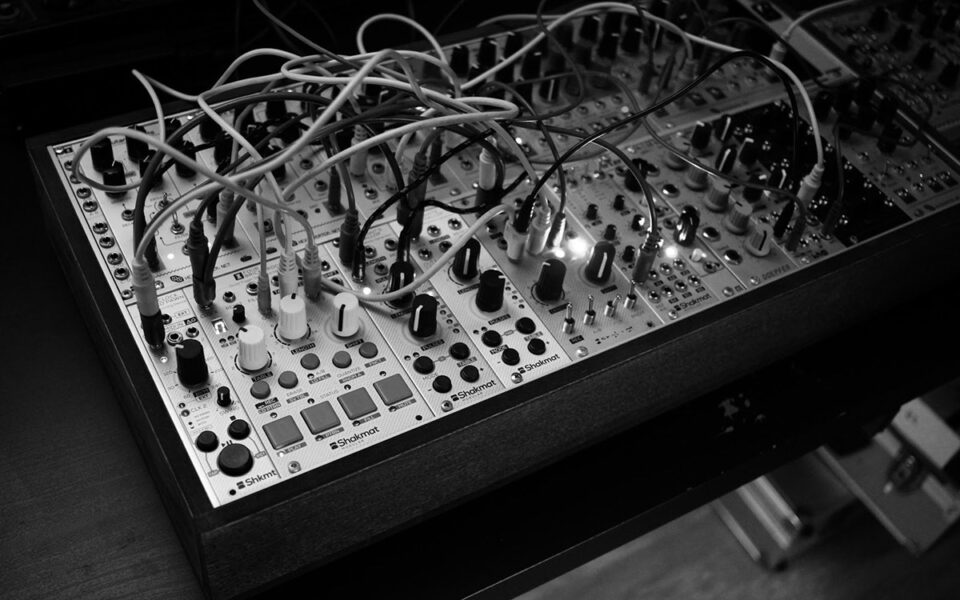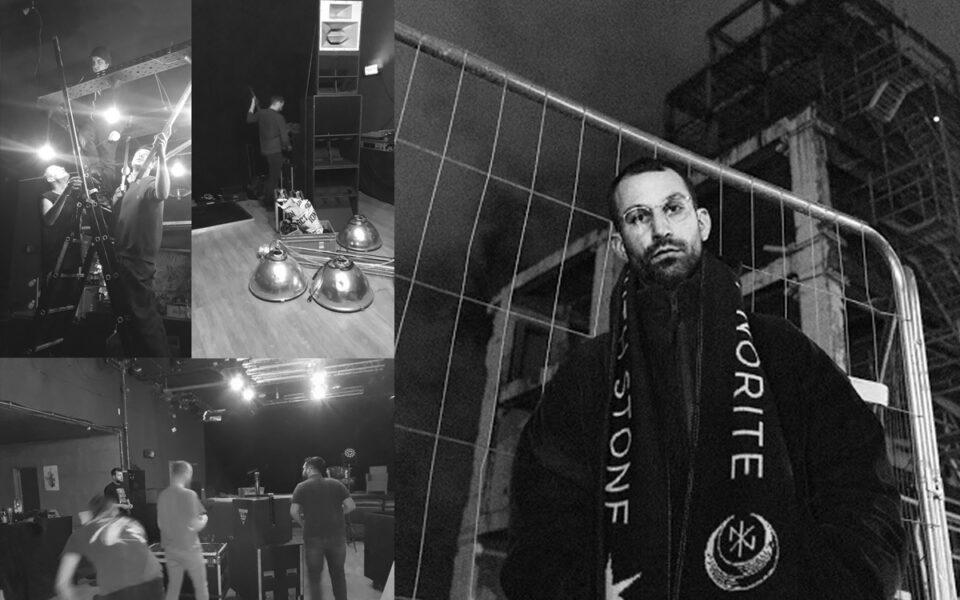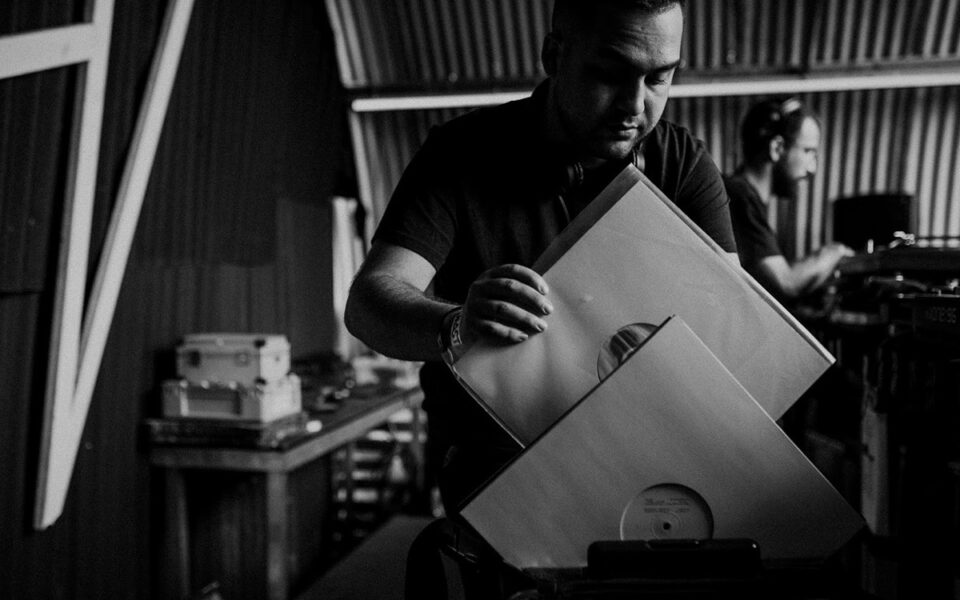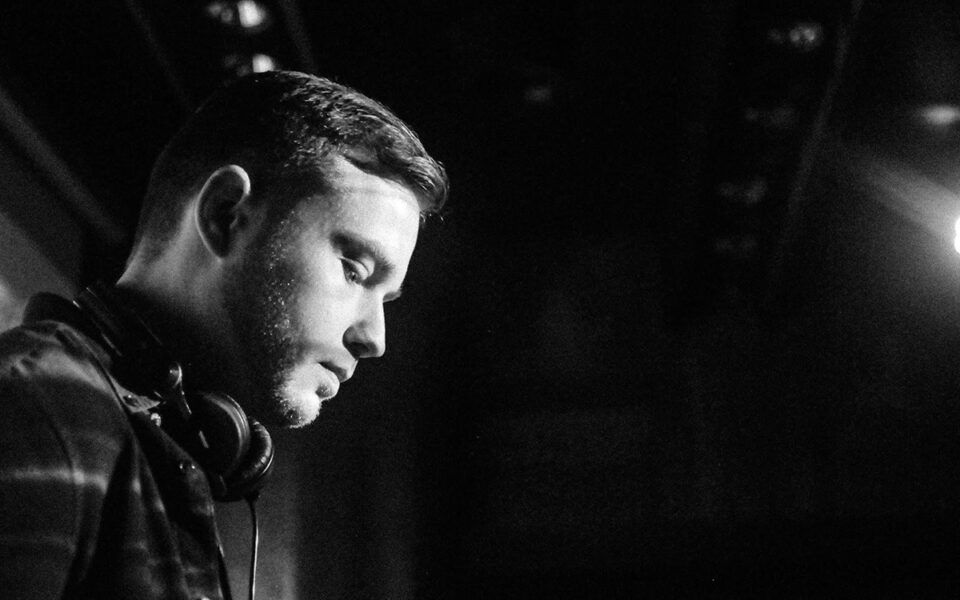Day Jobs - The Versatility of the Brussels Underground
You don’t have to be particularly attentive to know that electronic music (techno, house, and their offspring, to be more specific) has taken the whole of Belgium by storm in the past few years. Kompass in Ghent, C12 and FFORMATT in Brussels, Ampere and even more recently The Common in Antwerp - to only name a few - have all recently presented themselves to support this rise, each to their own taste.
Specifically in Brussels, for example, it can be seen quite clearly. In the past four years we have gone from a city dominated almost single handedly by one institution, to the capital of a cultural melting pot coupled with the selection of artistic events and determination to prove it. However, in a time where DJ’s have the reputation to the general public of reveling in their superstardom - endlessly world-touring and charging astronomical fees - we often forget a smaller, more modest reality that is being nurtured at a more local level of the scene. Some collectives, promoters, and local platforms have been discreetly pushing the flyer’s fine print; which include the artists that live in our own country. It is thanks to this that with the surge of this music, a new middle class of creatives is born. We know these names: Initiate, Contre Culture, NOXON, Chanoirs, and Gay Haze among countless others have been pushing their respective artists and styles to give us the ever growing choices of events every weekend.
It isn’t a secret that most of these artists aren’t living the extravagant lifestyles of your classic Ibiza resident - and for many, they don’t even want to. The question is: how do these artists occupy themselves outside of music to support themselves and how do they find the right balance between the practical and passionate?
I met François Gaspard - electronic engineer, coder, company owner, and musician/music lover of all kinds - at his beautiful home on the outskirts of Brussels. Gaspard has been at the heart of Belgian electronic music for quite a while, contributing more than just his wide variety of music under his seemingly wider variety of aliases [ALEA(s), GLÜ, formerly Bishop’s Dust, etc]: he operates Shakmat Modular, a small modular synthesizer company, with a hardworking little team. I had always been intrigued by his work as an artist, having previously been initiated to his meticulously constructed, pounding techno he does with the audiovisual group ALEA(s). Even though the trio I know him for is far from being the only thing occupying Gaspard’s schedule, it does represent quite well how he positions himself. It can be seen through everything else he does - small and specific projects that bend the rules and emphasize expressivity. The one thing that seems to remain constant through everything he does, is a certain fascination for his musical equipment, which is mostly four cases of Eurorack modules under a spaghetti of patching cables.
A quick peek into his racks in his studio that sits atop a narrow spiral of stairs, and I can already see ‘Shakmat’ printed on some of the modules. “We’re more focused on direct accessibility. Our sequencers embody this characteristic quite well.” What’s striking is the connection between his art and his products, which seem to feed each other quite well. The inspiration flows from one side to another as he explains that making music can give you an idea for a new product and a new product can in turn give you an idea for new music - something that seems very consistent with his work thus far. He works with a relatively small, but hard working team and despite what seems like a hard market to succeed in, Shakmat has been gaining traction with some successful modules, hitting markets as far and large as the United States and Berlin. Even then, however, making a living is hard for someone in Gaspard’s situation.
“We are lucky to have the artist status here in Belgium, something that I benefit from and that allows me to work on all of my projects, which were conceived without the intention of making a huge profit. Of course, I don’t want to perform without being paid because I believe that the effort should be reflected in the fee. It’s the same thing if I make 20 modules for example, I’d want them to be sold at a fair price. But I never started all of it thinking I was going to start a huge business and make a bunch of money off of it. However, there is this liberty of research and that’s what I appreciate about this status.” Gaspard goes on to specify that this situation was more of a reality before Shakmat and that things have changed a little bit.
“It would be a bit complicated if I just had the artist status; my projects make life more comfortable. Shakmat now represents a monthly salary that adds to this as well.” Now that production has changed and gone into a more industrial direction, the money has been better for Gaspard and with equally increasing activity, they’ve been able to have rising success in their market. The conversation with Gaspard was eye opening and in a time where it can feel as if everyone just wanted to expand their financial success, some of the people that are the most occupied with curating a local artistic scene seem to be content with a more modest income - a mindset that proves to be genuine and beneficial for everyone.
“For me, I’m in a situation that’s really ideal. Before COVID I wasn’t chasing gigs and I had a few good ones coming up - that was the base I wanted to be at; to be able also to have time for me, to work on the side and make money in a different way. It allows me to have total freedom, while throwing parties in Brussels the way I want,” says Souleiman Bacar, known to Brussels deep techno enthusiasts as lunar convoy. This is another artist who has really made a name for himself in recent years having been based in the Belgian capital since 2015 and working his way up ever since. Record producer, Norite label head (with Martin Respaut, a.k.a Foreign Material), promoter, DJ - having regularly played C12, Fuse, and FFORMATT- Bacar extends himself to contribute in almost every way to his scene. He manages to fly low on the general public’s radar, but doesn’t escape the attention of a growing subculture that has a liking for more forward-thinking music in Brussels.
This presence and recognition has been accentuated by the events Bacar has been hosting with Ahmet Altinbas (Altinbas) and Nicolas Hanson (Sonhan) known as Metropolis. This monthly event has been a non-profit playground for the trio by combining some of the most abstract dance music selection in the city, an intimate setting with a loyal and wild crowd, and exceptional sound quality.
“It’s really important for me to put the emphasis on the local scene. I don’t like the idea of traveling every weekend and polluting a lot just to play our records; especially when in every big city there is a thriving scene with a variety of talented people.”
It’s already hard to make a living as a DJ, but if you’re not touring, anyone will tell you it’s close to impossible. Bacar’s choice to tend to the Brussels' scene may offer freedom, but not riches; and this choice comes at a price, especially now of all times. It’s hard to wrap your head around his time management if you really pay attention to what he does, yet he still claims to have had more time on his hands than his Metropolis peers, who also work separately from music to make a living.
Having worked in television already when he lived in Paris, Bacar has been on day contracts with the RTBF working jobs like broadcast management and monitoring, to transferring footage to journalists for editing. Even though a full time contract has been offered to him, Souleiman chooses to leave himself as much time and freedom as possible to work on his art and his implications in the Brussels scene.
In this community everyone’s side jobs tend to vary; and, like François Gaspard, some have given themselves the possibility to work in music and sound outside of DJing and producing. Two good examples of this in our scene are sound engineers and Brussels natives Ahmet Altinbas (stage-name Altinbas as mentioned above) and Cédric Dhooghe - also known as Initial Code and founder of InDepth.
If you’re familiar with Altinbas’s work as a producer, it won’t surprise you that he’s a mixing/mastering engineer to help support him on the side. His almost surgical precision can be heard on tracks like Ionosphere for the label Non Series or even Articulation for Float Records. Apart from playing the city’s big clubs and continuously proving himself since 2015 with his debut release on Float, Altinbas has been relying on his work as an audio engineer to help make ends meet. He mastered C12’s first Social Distancing Compilation and has his own production on it. His work is pretty varied, it depends largely on what the artist or label wants him to do. It can span from a basic clean up to helping a track take the sonic form the artist intended. “Right now I’m working with Phara for his next EP; he wanted me to do some additional mixing for him as he couldn’t get the tracks sounding as he pictured. I think this is the perfect example of trying to understand where the artist wants to go and help him reach the vision he has for his music soundwise. A lot of artists are just musicians and need a little help to get their music to its full sonic potential.”
Like Bacar, and most people in the middle class of music, Altinbas’s schedule is pretty tight and naturally unpredictable. “It really just depends on the requests I have at that moment. Sometimes my whole week will be spent on mixing/mastering work, sometimes it will be just DJing, sometimes none of them. Producing is a bit more complicated as I need to have inspiration to actually start and try to make something interesting.” With this kind of schedule, it’s hard to imagine how the three of them, including Nicolas Hanson, have been able to put so much time and effort into Metropolis; and a huge reason for it being possible is the small team of dedicated friends the three have surrounded themselves with, a dynamic that sets the example for the overall authenticity the event bases itself on. With all of this, the group can of course encounter hiccups along the way, but Altinbas tells me that complications are rarely ever met, and when they are - they’re dealt with. However, it remains hard work to produce these events for the group that just officially gained status as a non-profit organization.
Cédric Dhooghe has also been giving his time to the scene in every way possible. Having created the local platform InDepth which he manages on his own, Dhooghe interviews, profiles, and hosts mix podcasts ranging from a majority of local acts including young blood like Atis [Voltage/Norite] and Initiate co-founder Pattrn to larger, more international acts like Kr!z & Pfirter [Token, MindTrip] or even Luigi Tozzi [Hypnus] and Ness [The Gods Planet] from Italy. Dhooghe has been doing a lot for the deep techno community in Belgium and lately has been extending his work to documenting outside its borders. On the side, Dhooghe works as a freelance audio engineer mostly in live events - for example at Fuse. It’s intense, however, and with a multitude of other projects going on, Dhooghe tells me that structuring your life as best as you can is key.
“There are moments when my schedule is really full and others when it’s emptier. [...] It’s not always easy, you have to be really organized and able to calculate your timing to be able to take advantage of moments when you have some free time.” He’s right, and even though InDepth is a familiar name to most that are involved in the local scene, which is thanks to this kind of work ethic, the platform currently contributes nothing to Dhooghe’s monthly income. “[Working freelance] is about keeping a certain level of freedom, which I need to develop my projects and to continue my implications in the electronic music scene.” The choice to go freelance is a common one in the scene that facilitates time management, like Souleiman Bacar with his day contracts at the RTBF, and the reality is if you’re a huge act that’s touring the world and is booked out months in advance, you don’t have to count on anything else. For artists who have side jobs, working contract to contract gives a control over their schedule that can allow for radical and quick changes. The counter balance for people like Dhooghe, Bacar, Altinbas, and Gaspard in this situation, is the freedom to push really specific music to a public that’s progressively initiating itself to accept it. Metropolis doesn’t fear losing their audience by trying new things, because trying new things in an intimate atmosphere is its entire selling point. “There were other platforms, of course, like Fuzz and Redbull Elektropedia. The idea was to avoid redundancy; to not do what’s already been done. Being focused on something more precise and underrepresented (deep techno, ambient, hypnotic, etc) by these other magazines and platforms allows the project to exist,” says Cédric Dhooghe about InDepth. So, on one side, they give themselves a small market - a niche - which allows the possibility of some form of recognition or financial reward and on the other, money doesn’t get too involved to where it directs a certain creativity or expression.
Additionally, the life of the ‘touring DJ’ can be exhausting and have a huge impact on mental health, which is something Bacar touched on as well and has even been reported on before. “I don’t know if that’s the life I want. I’m not saying I could get the same, but even if I could I’m not sure that’s the kind of life I want,” he tells me carefully after speaking of certain artists that have been starting to gain recognition on an international level, getting gigs booked all over the world.
The life of an artist in this situation isn’t easy, but for many it seems to be preferable. Of course a few gigs more here and there would be nice, but they play enough of an important role to feel like they’re contributing instead of benefiting. What they represent isn’t a name or a booking fee - they represent a city; a city that has a lot to promise.
- Interview written by Noah Hocker
(cover image provided by Cédric Dhooghe - InDepth)






